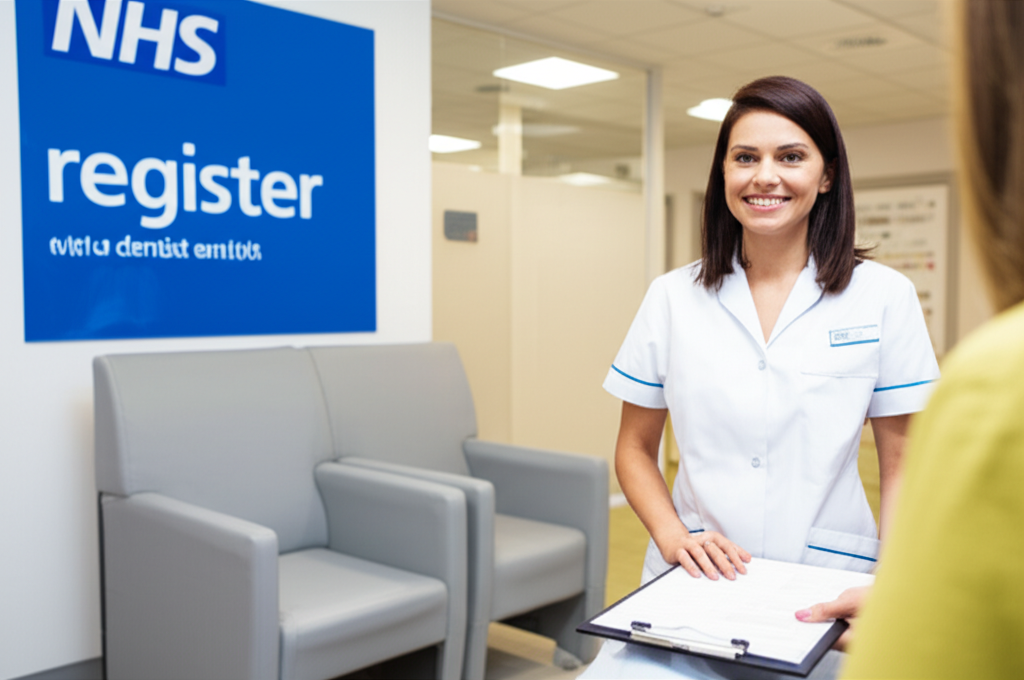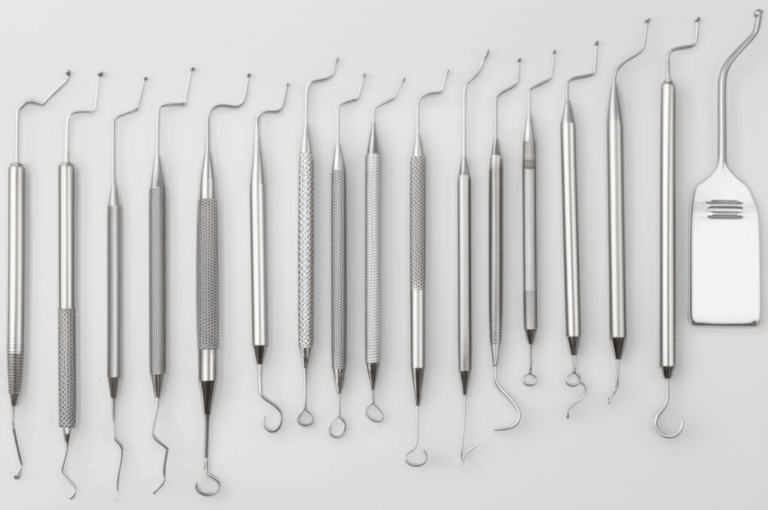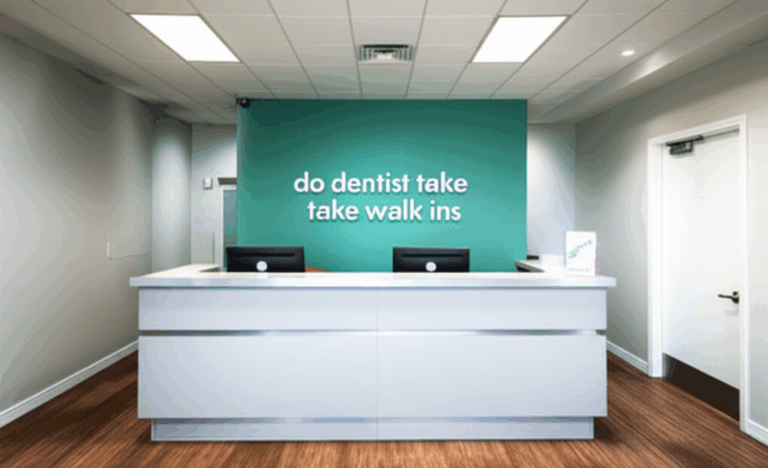
How to Register with an NHS Dentist: A Clear Guide to UK Dental Care Access
Introduction
I remember the first time I tried to “register” with an NHS dentist. I thought it would be as simple as signing up with a GP. Fill in a form. Get on a list. Sorted. Turns out, NHS dentistry has its own way of running things. You don’t sign up forever. You’re seen for a treatment plan, and then you have to keep showing up for check-ups to stay on their books. And since many practices don’t have space for new NHS patients, the whole thing can feel confusing.
So here’s the guide I wish I’d had. I’ll show you how I find NHS dentists taking on new people. I’ll explain how “registration” really works, in plain words. I’ll talk about what it costs, who qualifies for free treatment, what documents you need to bring, what to do if you can’t find anyone, and how to stay with your practice once you get in. I’ll also share some simple tips that helped me and my friends get seen faster. Everything here follows NHS England guidance and what actually happens in real life. Ready? Let’s start.
Table of Contents
Step 1: Finding NHS Dentists Accepting New Patients in Your Area
Using the Official NHS Website Tool (nhs.uk/find-a-dentist)
I always begin with the NHS website. It’s the best place to start, even if it’s not perfect.
- Go to nhs.uk/find-a-dentist and put in your postcode.
- Look for the filter showing practices “accepting new NHS patients.” Use this filter if you can. Some practices show “Not accepting NHS adults” but might still take children.
- Click on practice pages to check opening times, phone numbers, accessibility, and what services they offer. Some show urgent care or online booking.
- Make a list of 8–12 practices you can get to. This might sound like a lot, but it’s worth it because openings change fast.
A quick heads up—website lists can be out of date. I once saw a place listed as “Accepting new NHS adult patients.” I called later that day and they’d just stopped. Always double check.
Contacting Dental Practices Directly
The website helps, but ringing up is what actually works. I call every practice on my list.
I ask things like:
- Are you taking new NHS patients?
- If not, can I join your NHS dentist waiting list? How long will I wait, usually?
- Do you take NHS children as new patients?
- Can I join a list for last-minute appointments?
- If I’m let in as a new patient, how long before my first check-up?
- What ID and address proof should I bring?
- If I don’t have to pay for NHS dental charges, what proof should I bring?
I always jot down details and dates. I ask when’s the best time to call again. Keeping notes helped me get seen faster than friends who only called once. Things change day by day, so it pays to keep at it.
Local Healthwatch and Community Resources
I’ve had good luck with Local Healthwatch. They collect up-to-date info on NHS dentist openings. They also listen to patients. If I get stuck, I check their website or phone them. They sometimes know where the lists are shorter or who’s about to open slots.
I also ask neighbours or other parents at the school gate. Word-of-mouth helps, but I always double check by ringing the practice.
If you can’t find anything, try your local council website or check what NHS England says for your area. Sometimes they show where urgent dental care is or if any special help is running.
Step 2: Understanding How “Registration” Works for NHS Dentistry
It’s Not Like Registering with a GP
This bit took me a while. With NHS dentists, you don’t sign up for life. You’re seen for a “course of treatment.” That could be a check-up (Band 1), or more work if needed (Band 2 or Band 3). When it’s over, you don’t have a fixed tie to the practice anymore. You might be seen again later, but only if they have space.
What keeps you “on the list”? Going to regular check-ups—how often depends on what your dentist says. If you’re told to come back in 6 months and you miss it for years, you could lose your spot. They have to do this to share out limited places.
What “Accepting New Patients” Really Means
“Accepting new patients” sounds easy. It covers a lot, though. Often it means:
- You go on a waiting list.
- They take children faster than adults.
- They might take only urgent cases sent by NHS 111.
- They have a few spots now, but they’ll go fast.
- They might only take new people for certain things.
I once got told “Yes, we’re accepting adults” and then found the first check-up was months away. Always ask about timing and decide if you’re happy to wait.
Step 3: Your First Steps After Finding a Dentist
Booking Your First Appointment (Check-up)
If a practice says yes, they’ll book your check-up or put you on a waiting list. They’ll want:
- Your name and date of birth.
- Your address and phone number.
- Email, if you want reminders.
- Sometimes they’ll ask for GP details.
Some practices let you book online. Most use the phone. If you’re waiting, ask about last-minute cancelled slots—you might get in quicker if you can turn up at short notice.
What Documents to Bring
Bring the basics for your first NHS dentist visit:
- Photo ID—passport or driving licence.
- Proof of address—a recent bill or bank letter.
- Proof for free NHS dental care if you get it (like Universal Credit, HC2 or HC3 Low Income Scheme certificate, benefit letters, or a maternity exemption).
- A list of your medicines and any health problems.
- Information about your past dental work, if you have it.
A receptionist once told me that good proof of exemption avoids expensive mistakes later. So always bring the right documents.
Navigating NHS Dental Charges and Exemptions
NHS dental charges can seem confusing, but they’re simple once you see how they fit together. Prices are different in England, Scotland, and Wales—these are England’s rates for 2023/24. Always check nhs.uk for the newest numbers.
The Three NHS Dental Charge Bands Explained (2023/24 Rates)
- Band 1: £25.80. Covers check-up, advice, X-rays, and a simple clean if needed.
- Band 2: £70.70. Everything in Band 1, plus fillings, root canal or extractions.
- Band 3: £306.80. Everything in Bands 1 and 2, plus things like crowns, dentures, and bridges.
If you need emergency care, that’s a separate charge. The dentist will fix the urgent problem and then talk about what happens next.
One example: I booked a check-up (Band 1), but needed a filling. That moved it to Band 2. I just paid the Band 2 price for the whole lot, not Band 1 plus Band 2.
Want to see how crowns and bridges are made for your treatment? Some practices work with a crown and bridge lab. Dentures usually go through a removable denture lab.
Implants are mostly not covered by the NHS for adults—you might hear about an implant dental laboratory if you want to know how private work is made.
Who Gets Free NHS Dental Treatment?
You may not have to pay for NHS dental care if:
- You’re under 18.
- You’re under 19 and still in full-time schooling.
- You’re pregnant or had a baby in the past year (with proof).
- You get certain income-based benefits.
- You have an HC2 certificate from the NHS Low Income Scheme (or part help with an HC3).
Children are often seen quicker. If you have kids, always ask if the practice will take them, even if they’re not taking adults.
Students under 19 don’t pay—bring proof. If you’re pregnant or just had a baby, bring your exemption.
Claiming Your Exemption (and Not Getting Fined)
You claim it by filling in the FP17DC form at the practice. Tick the right box and sign. If you get this wrong, you can get fined—which is not fun. Bring your documents and ask the receptionist if you’re not sure.
What to Do If You Can’t Find an NHS Dentist
I know the feeling—“We’re full.” But there are still things you can do.
Urgent Dental Care (Call 111)
Dental pain, swelling, accidents, or other urgent stuff? Call NHS 111. They’ll tell you where to go. It’s not for normal check-ups, but you’ll get seen if you need fast help.
If you have a big emergency (like swelling stopping your breathing), call 999 or go to A&E—but that’s rare.
Widen Your Search
Try looking 5–10 miles further. Nearby towns may have space. Train or bus links help. If you work or study somewhere else, see if a practice near there takes you.
Waiting Lists
Waiting lists might be a month or could be a year. Ask how it works:
- Is it first come, first seen?
- How often do they check the list?
- Can you stay on while looking elsewhere?
You can join several waiting lists—you only become an official patient when you go for your first appointment.
Private Dental Care
Sometimes you’ll only get quick treatment if you go private. Prices vary but waiting is usually shorter. Some offer pay-as-you-go or monthly plans. If money is a problem, check if you can get Low Income help.
Maintaining Your Active NHS Dental Status
You’ve finally got in—now keep your spot.
Keep Up with Check-ups
Your dentist tells you how often to come. Could be every three months, or up to two years. Don’t let it slide or you might have to start again from scratch.
Book your next check-up before leaving the practice. If you can’t make it, ring early to cancel. Miss a couple without telling them, and you’ll likely get removed from their list.
How to Change Your NHS Dentist
It’s simple. Find a new practice, ask to join. You don’t need permission from your old dentist. But if you’re part-way through treatment, it’s best to finish first.
Conclusion
Once I understood how NHS dentistry really works, I stopped stressing. There’s no forever registration—just a rolling relationship based on care and showing up.
Here’s what actually works:
- Use nhs.uk/find-a-dentist to make a list.
- Ring up practices for real answers.
- Ask about lists, how long the wait is, and what to bring.
- Take ID, proof of address, and any proof you get free care.
- Know what you’ll pay, and fill in the FP17DC form right.
- Call NHS 111 for emergencies.
- Go to your check-ups to stay on the books.
Start today. A few calls can make the search a lot easier.
FAQs
Do I need to be registered with a GP before I can register with an NHS dentist?
No, you don’t need to be with a GP to see an NHS dentist.
Can I register with two NHS dentists at the same time?
No, not for normal care. You can be on more than one waiting list, though.
What happens if I miss an NHS dental appointment?
If you don’t show up and don’t let them know, you might be taken off the list. Keep in touch if you need to cancel.
How often should I have an NHS dental check-up?
Your dentist will say—often between 6 months and 2 years.
What documents do I need for an NHS dentist?
Photo ID, proof of address, and proof for any free care claims. Also bring a list of medicines and dental history if you have it.
Is it hard to find an NHS dentist?
Yes, in some places. Kids get seen quicker. Keep trying different areas if you can.
Can I choose my NHS dentist?
Yes, if a practice has space.
What if I can’t find an NHS dentist near me?
Keep checking, widen your search, join lists, ask Healthwatch, call 111 for urgent care, or think about private care if you can.
How long does it take to get my first NHS dentist appointment?
It depends—sometimes weeks, sometimes months.
What does NHS dentistry cover?
Most treatment to keep your mouth healthy—check-ups, fillings, root canal, extractions, crowns, dentures, and more. Cosmetic work (like veneers/whitening) is usually private.
Do I need proof of address for an NHS dentist?
Yes, nearly always—a recent bill or bank statement works.
I’m on benefits. Do I get free dental treatment?
Some benefits mean free treatment, others don’t. It’s best to ask or apply for the NHS Low Income Scheme.
How do I complain about an NHS dentist?
Start with the manager. If it doesn’t work, contact NHS England or your local NHS board.
What happens at the first NHS dental appointment?
You get a check-up, chat about your health, maybe X-rays, and advice or a treatment plan.
Do children register differently?
No, but many practices see children quicker. Bring proof of age and schooling if needed.
Can I get orthodontics on the NHS?
Usually only for kids with clear need. Adults rarely do, unless there’s a serious reason.
Can I get a crown, root canal or dentures on the NHS?
Yes, if needed. They fall under Band 2 or Band 3.
I’m anxious at the dentist. What can I do?
Tell them when you book—they’ll try to help and may offer longer or gentler appointments.
Do NHS dentists do home visits?
Some services visit people who can’t leave home. Ask your GP or 111 to find out more.
Can overseas visitors get NHS dental care?
Emergency care, yes. Routine NHS care depends on your residency and rights—check NHS info.
Final practical tips from my experience:
- Keep a note of places you called and dates.
- Ask about cancellation lists and offer to come in last-minute.
- Set reminders to check for new spaces every few weeks.
- Keep your documents together and ready.
- Be kind to receptionists—they’re busy and kindness helps.
A quick note about dental lab work: When you get a crown, denture or bridge, your dentist works with dental labs that make these to order. You never need to contact a lab yourself—the practice arranges everything. If you’re curious, see a crown and bridge lab, removable denture lab, or implant dental laboratory for how these things are made.
I wrote this guide to be as close as possible to how NHS dental care is right now—clear, honest, and useful. Start with nhs.uk/find-a-dentist and keep at it. Good luck!







